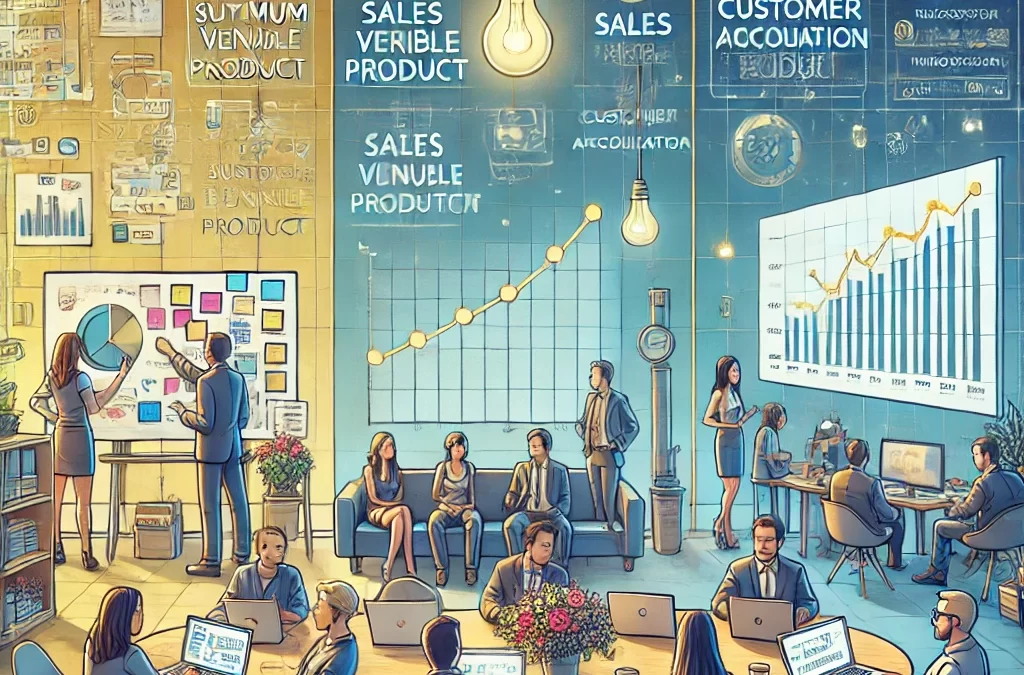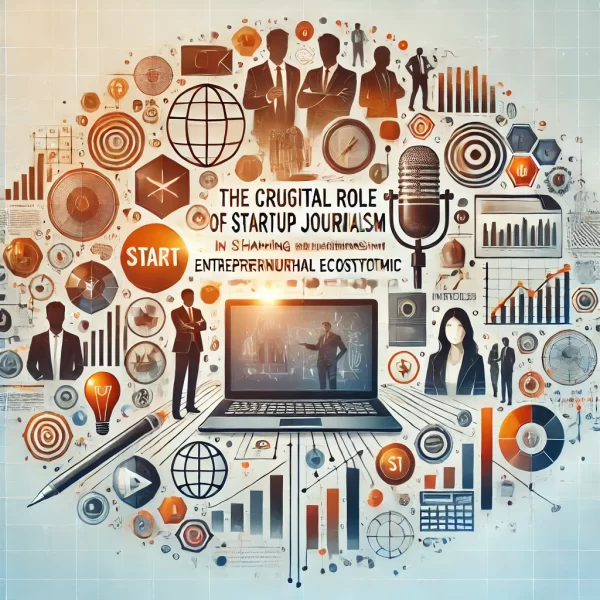The Genius Blueprint: Habits that Propel Tech Visionaries
The Winning Habits of Tech Icons
In the world of innovation, tech startup founders are a breed apart. They’re the relentless dreamers who transform ideas into empires, shaping the way we live, work, and connect. But what fuels their success? What are the common threads woven into their stories?
By examining the habits and routines of tech titans like Mark Zuckerberg, Elon Musk, Jeff Bezos, and Bill Gates, aspiring entrepreneurs can uncover strategies to power their own journeys.
A Relentless Hunger for Knowledge: Fueling the Innovation Engine
At the core of every successful tech founder is an insatiable curiosity and a thirst for knowledge. Bill Gates, a voracious reader since childhood, famously consumes non-fiction works to expand his perspective. Gates reportedly reads about 50 books annually, dedicating up to an hour daily to this habit. Some of his favorites include:
- The Mythical Man-Month by Frederick Brooks: A deep dive into the complexities of software development.
- Business Adventures by John Brooks: Essays on pivotal moments in business and finance.
- The Innovator’s Dilemma by Clayton Christensen: Insights into how disruptive technologies reshape industries.
Elon Musk, another avid reader, credits his fascination with technology to early exposure to science fiction and encyclopedias. Among his top picks:
- The Hitchhiker’s Guide to the Galaxy by Douglas Adams: A humorous exploration of life and the universe.
- Einstein: His Life and Universe by Walter Isaacson: A biography capturing the brilliance of Albert Einstein.
- Superintelligence by Nick Bostrom: An examination of the risks and potential of artificial intelligence.
Musk’s passion for learning extends beyond books. For instance, he famously taught himself rocket science by reading textbooks and consulting experts, eventually leading to the founding of SpaceX in 2002. Today, SpaceX is valued at over $150 billion, a testament to the power of self-education.
This dedication to lifelong learning enables leaders to stay ahead of industry trends and envision groundbreaking possibilities.
Embracing the Power of “Less is More”: The Minimalist Mindset
Contrary to the image of opulent lifestyles, many tech founders adopt minimalist habits to streamline their decision-making. Mark Zuckerberg’s uniform of a gray t-shirt reflects his commitment to reducing decision fatigue. He has remarked, “I really want to clear my life to make as few decisions as possible about anything except how to best serve this community.” This mindset has helped Meta (formerly Facebook) grow into a company with a market cap exceeding $700 billion as of 2025.
Mark Zuckerberg
- On Focus: “The question I ask myself like almost every day is, ‘Am I doing the most important thing I could be doing?’ … Unless I feel like I’m working on the most important problem that I can help with, then I’m not going to feel good about how I’m spending my time.”
- On Risk-Taking: “In a world that’s changing really quickly, the only strategy that is guaranteed to fail is not taking risks.”
- On Simplicity: “I really want to clear my life to make as few decisions as possible about anything except how to best serve this community.”
Jeff Bezos, who prioritizes eight hours of sleep per night, underscores its value for cognitive function. Studies reveal that well-rested individuals are up to 20% more productive, a principle Bezos applies while steering Amazon’s operations, which generated over $500 billion in revenue in 2024.
By focusing on essentials, these leaders conserve energy for strategic decisions and innovation, ensuring their ventures remain agile and forward-thinking.
Jeff Bezos
- On Customer Obsession: “The most important single thing is to focus obsessively on the customer.”
- On Long-Term Thinking: “Your margin is my opportunity.” (This quote highlights his focus on reinvesting profits back into the company for long-term growth.)
- On Innovation: “Day 2 is much harder than Day 1. Day 1 is easy. Day 2 is where the real work begins.”
The Tenacious Spirit: Embracing Failure as a Stepping Stone
The path to entrepreneurial success is rarely linear. Tech founders often view setbacks as opportunities to grow. Elon Musk’s ventures, including SpaceX and Tesla, have faced numerous challenges. In 2008, SpaceX’s Falcon 1 rocket failed three times before achieving success on its fourth attempt. Musk invested nearly all his personal fortune, approximately $180 million, to keep Tesla and SpaceX afloat during this period. Today, Tesla is worth over $800 billion, and SpaceX has revolutionized space travel.
This tenacity—turning obstacles into opportunities—is a cornerstone of their success.
Elon Musk
- On Persistence: “Never give up on something that you truly believe in. Never give up on something that you absolutely love.”
- On Learning: “I think it’s important to view knowledge as sort of a semantic tree—make sure you understand the fundamental principles, i.e. the trunk and major branches, before you get into the leaves/details or there is nothing for them to hang on to.”
- On Ambition: “I think it’s important to have a long-term goal that excites you. Finding and cultivating that inner excitement is key to long-term happiness.”
Long-Term Vision: Thinking Beyond the Horizon
While adaptability is critical in the fast-paced tech world, visionary founders excel at long-term strategic thinking. Jeff Bezos’ emphasis on a “Day 2” mentality at Amazon urges teams to consistently innovate and challenge the status quo. He once stated, “If we can keep our competitors focused on us while we stay focused on the customer, ultimately we’ll turn out all right.” This philosophy has helped Amazon capture nearly 40% of the U.S. e-commerce market.
Bill Gates’ foresight extended beyond software, envisioning the transformative impact of personal computing on society. Microsoft’s Windows operating system now powers over 70% of the world’s desktop computers, a testament to his ability to anticipate and shape future trends.
Such forward-thinking empowers these leaders to build resilient and sustainable enterprises.
Bill Gates
- On Learning: “The advance of technology is based on making it fit the human being, and not forcing the human being to fit the technology.”
- On Giving Back: “Success is a lousy teacher. It seduces smart people into thinking they can’t lose.”
- On Philanthropy: “I believe the richest people in America are trustees—trustees who wield tremendous power over the lives of others.”
Building a Culture of Excellence: Attracting and Retaining Top Talent
Tech startups thrive on the collective brilliance of their teams. Recognizing this, founders cultivate environments that attract and retain exceptional talent. Mark Zuckerberg’s “hacker way” culture at Meta encourages open communication, flat hierarchies, and a bias toward action. This culture has enabled Meta to maintain over 90% employee satisfaction in key departments.
Elon Musk’s demanding yet inspiring leadership motivates teams to achieve ambitious goals. For example, SpaceX’s groundbreaking Starship project involves a team of over 10,000 employees working towards making humanity a multi-planetary species. Musk’s ability to inspire a shared vision has turned SpaceX into the first private company to send humans into orbit.
By fostering cultures of innovation and excellence, these leaders ensure their organizations remain at the cutting edge.
In Conclusion: The Unwavering Pursuit of Excellence
The stories of these tech pioneers highlight the power of ingenuity, determination, and a relentless drive for excellence. Aspiring founders can draw from their habits to navigate the challenging world of startups. Success isn’t a solo endeavor; it’s a collaborative effort fueled by shared vision, lifelong learning, and an unyielding belief in innovation’s ability to transform the world.
For Further Exploration
- Zero to One: Notes on Startups, or How to Build the Future by Peter Thiel
- Elon Musk: Tesla, SpaceX, and the Quest for a Fantastic Future by Ashlee Vance
- How to Win Friends and Influence People by Dale Carnegie
By delving into these resources and studying the habits of successful entrepreneurs, aspiring startup founders can build a strong foundation for their own ventures. The journey to success may be challenging, but with the right mindset and strategies, it is undoubtedly achievable.







